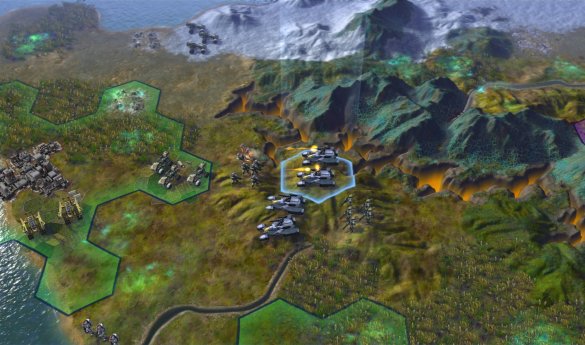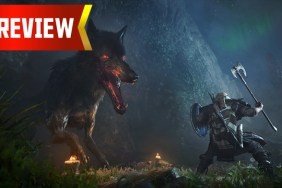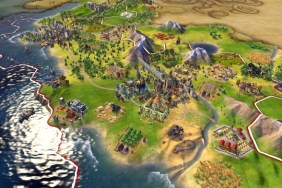Beyond a reasonable doubt.
The chief reactionary contention against Sid Meier's Civilization: Beyond Earth is why it isn't just an expansion pack for Civilization V. And no one should be blamed for feeling that way about this futuristic interpretation of the long-running series, since the sheer number of equivalences between the two borders are difficult to miss: gold has become energy, social policies are now virtues, hidden ruins are resource pods, archeological digs are expeditions, scouts are explorers, warriors are soldiers, etcera, etcera. But look past the obvious similarities, and there are enough alterations and enhancements to the core Civilization experience to warrant a second, more thorough glance.
While most of the elements in Beyond Earth will be familiar, their configuration will be ponderous at first. Since the main Civilization series is based on actual history, Firaxis has seen fit to allow players to create their own civilization for the supposed future in a user-created seeded start. That said, each of the preset civilizations envisions various continental alliances, like the Pan-Asian Cooperative and the American Reclamation Corporation, that will ultimately oppose each other on an exoplanet for humanity's repopulation. Hey, if we all had worked out our problems, there wouldn't be much of a game here, right?
The seeded start supports a breadth of options from among four sets of passive bonuses, including sponsors, the type of colonist, cargo, and spacecraft. Defining the parameters of your civilization will greatly impact the early number of turns, with some choices improving production, covert operations, trading routes, research, or culture. Choosing the proper set of perks, like arriving on the planet with a worker or perhaps one additional population, will project an initial direction toward a specific victory condition. As for myself, I like focusing on culture so I chose Artists as my type of colonists for quick culture boost in each city, and I tended to pick a spacecraft that expands the radius of the landing zone for a better chance of picking a prime capital city location.
Once you land on the chosen planet, of course after scanning the area for tiles that are surrounded by strategic sources and generate the best yield for food, production, and energy, you'll build your society much as in prior Civilization titles. The city's population will grow to work more tiles, buildings that sustain health (essentially, happiness) and other necessities of the civilization can be produced, and the city's borders will expand with higher culture. Collect enough energy, and you can purchase tiles, buildings, or units without having to wait.
By accumulating science, technologies can be researched and further explored by viewing the entire tech tree web which looks like a web of concentric circles. How you wish to progress in science is extremely flexible, with multiple leafs and branches available for every group of technologies. One important point, unlike every other Civilization title, is that you'll need to research Pioneering in the opening group of technologies to produce colonists who are responsible for creating new cities. That said, you can choose to begin with the Pioneering technology in the seeded start.
On a broader note, several elements you would expect in the endgame of Civ V are integrated right at the beginning of Beyond Earth. Explorers can venture out into the field and discover expedition sites much like archeological dig sites, earning your civilization some bonuses after a few turns. Your explorer can then restock at one of your cities before heading out to another dig site, which eliminates the need to specifically produce archeologists themselves.
Not only can you venture down the tech tree extremely fast, if you so choose, but you can also do the same for virtues, arranged in four groups with three tiers—Might (military), Prosperity (food, city growth), Knowledge (culture, science), and Industry (production and trade). Though the demo I played only lasted one hundred turns, I was able to delve into the third tier of the Knowledge tree (on Standard speed) within that time. In addition to earning bonuses for choosing a set number of virtues in one particular category, you'll also earn them for selecting virtues across tiers, allowing you to have a legitimate jack-of-all-trades strategy.
Beyond that, the exoplanet is home to indigenous lifeforms and health-sapping miasma, both of which present obstacles to the development of your civilization. Any unit caught in miasma at the end of its turn will receive minor damage that might become problematic when surrounded by aliens or enemy troops. Workers with the proper immunity, though, can cleanse tiles of miasma and allow your units a bit more breathing room at base.
Aliens, on the other hand, are not the simple-minded barbarians from Civ V and act like a faction all its own. Eliminating hives will force the aliens to be far more aggressive against your colonies and units, which might seem right in line with civilizations centered around military strength, but unless you install the proper defenses, they have no qualms entering your city and wrecking everything in sight. Siege worms will barrel through tile improvements, your explorers will be drowned by multiple alien units right from the start, and krakens can tear your naval units apart. Sometimes it's better to opt for the pacifist route and take the scenic route around the aliens, even if they swipe a few precious explorers by chance.
Your stance on the alien threat will impact your affinity toward three philosophies, inspired by the ideologies from Brave New World: Harmony, changing humanity to become one with the alien planet; Purity, holding that humanity should stay the course; and Supremacy, dominating the planet and enhancing humanity. Gaining levels in an affinity by researching technologies tied to it will earn additional perks (Purity's first level makes explorers immune to Aliens), grant access to different units, change the aesthetic of your units, and give different choices when upgrading your units to the next level. More importantly, each of these affinities contribute to a victory condition of their own—Promised Land, Transcendence, and Emancipation—on top of the usual Domination victory, where you must capture the capitals of every other player, and the Contact victory, where you can piece together a mysterious signal from several lucky excavations.
Since I was only allowed to experience the first 100 turns for Beyond Earth, I wasn't able to explore how the victory conditions change the gameplay or how alien interaction might change in the long-run for a pacifist approach. I couldn't deeply examine the overhaul for covert operations or interact with the more powerful endgame units which can decimate enemies. Diplomacy was rather limited in the early game, but it's possible to form an open borders treaty right from the get-go and trade science per turn in addition to the traditional gold per turn.
Despite having limited time with Sid Meier's Civilization: Beyond Earth, I'm more than ready to finish a match when the game releases October 24, 2014 for PC. Better yet, the game is already primed for mods, hopefully through Steam Workshop, which means that we'll finally have the "Mass Effect/Star Trek/Doctor Who/Firefly/Star Wars/X-COM" fantasy crossover strategy game we've always wanted.
Sid Meier's Civilization: Beyond Earth Screenshots
-
Sid Meier's Civilization: Beyond Earth Screenshots #1
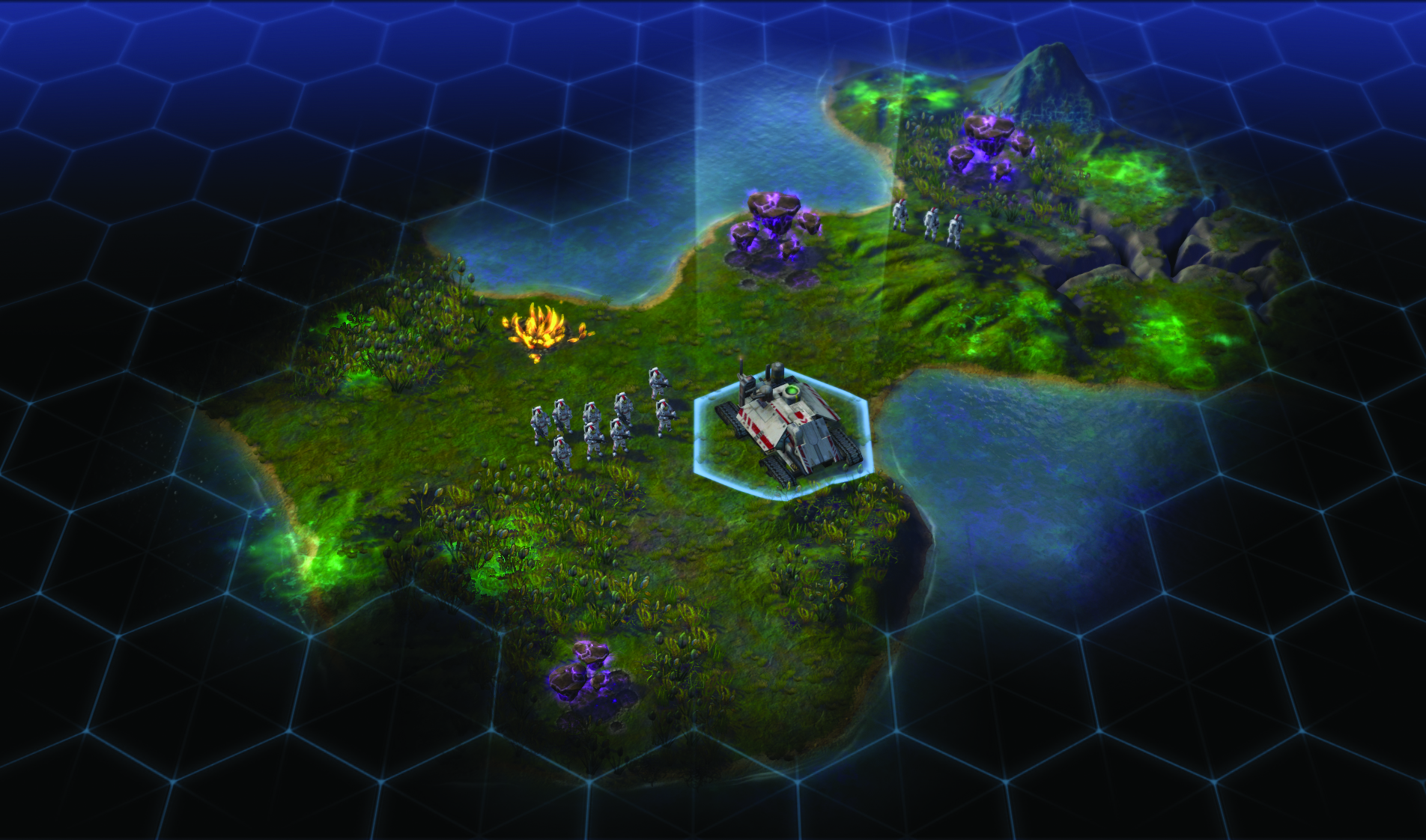 [Click to enlarge.]rn
[Click to enlarge.]rn -
Sid Meier's Civilization: Beyond Earth Screenshots #2
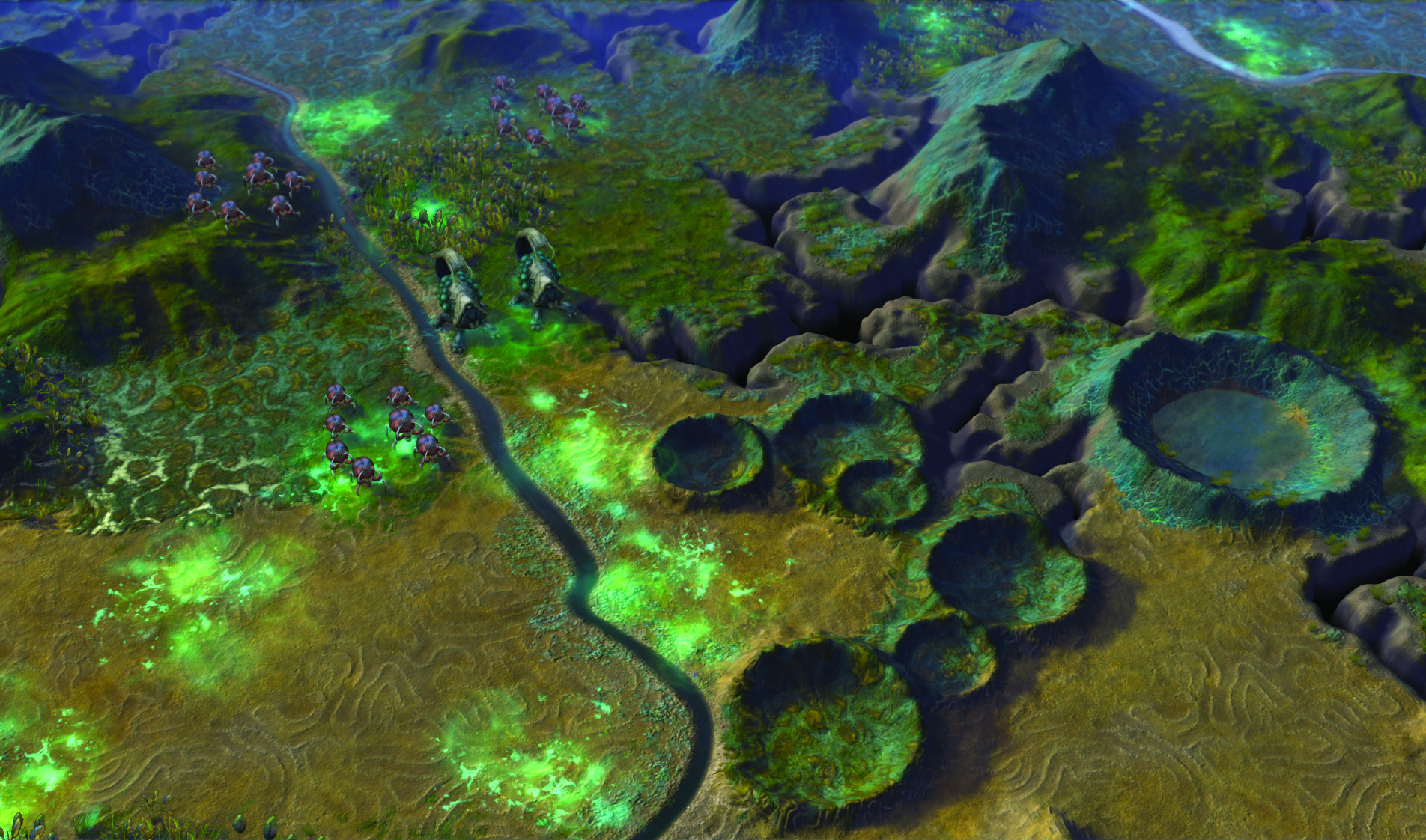 [Click to enlarge.]rn
[Click to enlarge.]rn -
Sid Meier's Civilization: Beyond Earth Screenshots #3
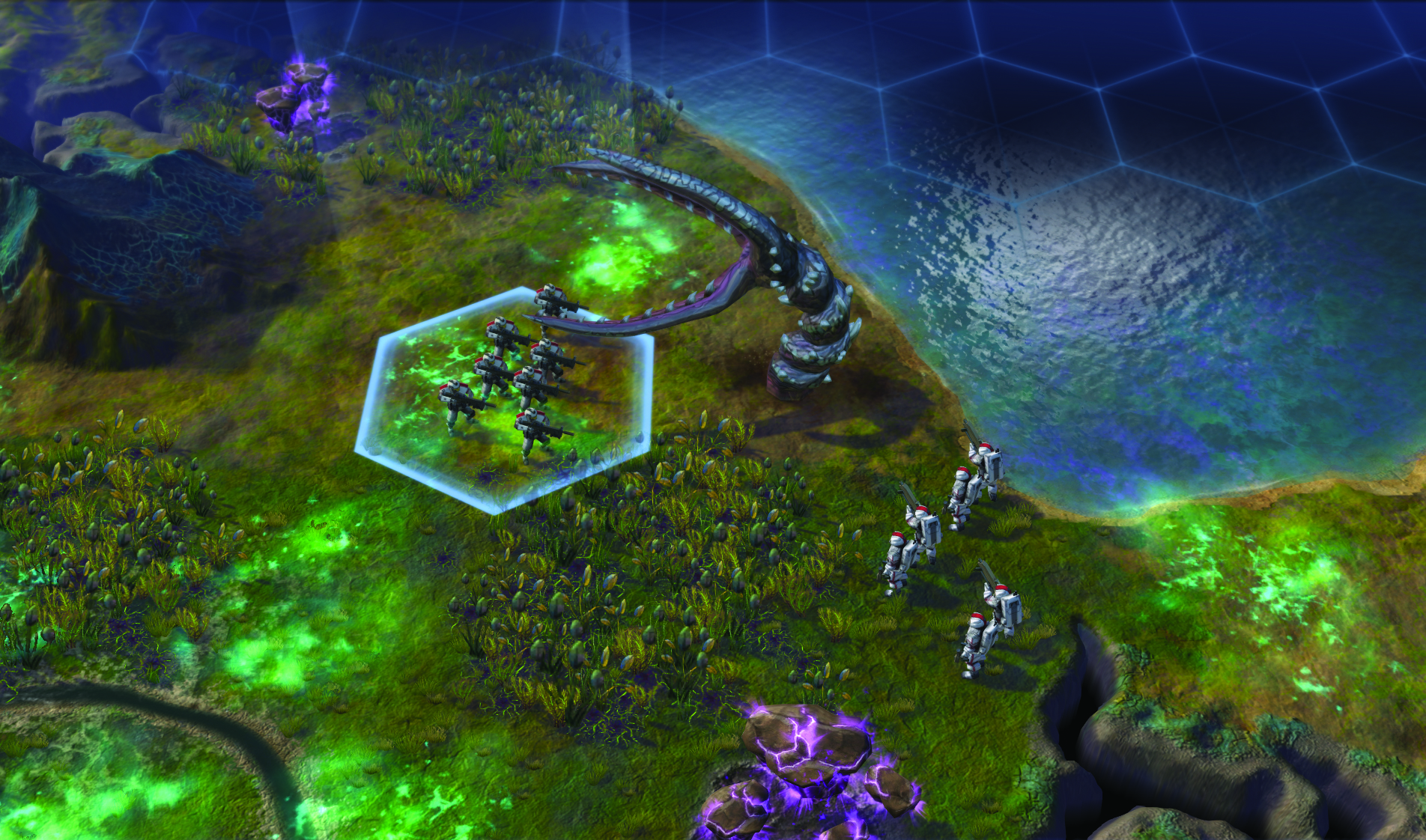 [Click to enlarge.]rn
[Click to enlarge.]rn -
Sid Meier's Civilization: Beyond Earth Screenshots #4
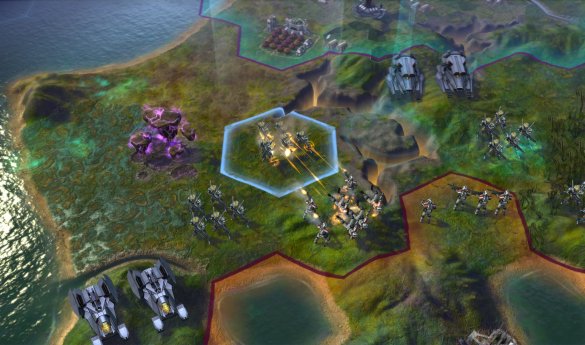
-
Sid Meier's Civilization: Beyond Earth Screenshots #5
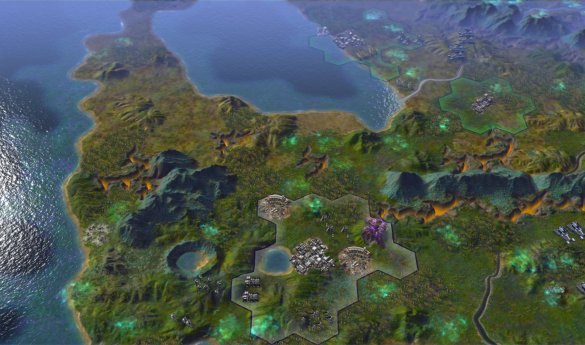
-
Sid Meier's Civilization: Beyond Earth Screenshots #6
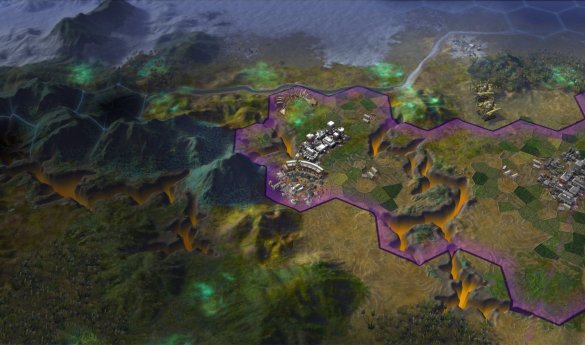
-
Sid Meier's Civilization: Beyond Earth Screenshots #7
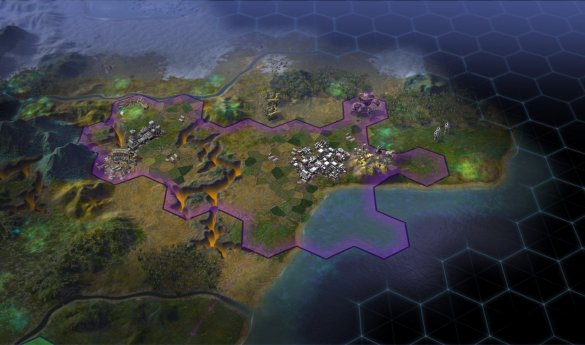
-
Sid Meier's Civilization: Beyond Earth Screenshots #8
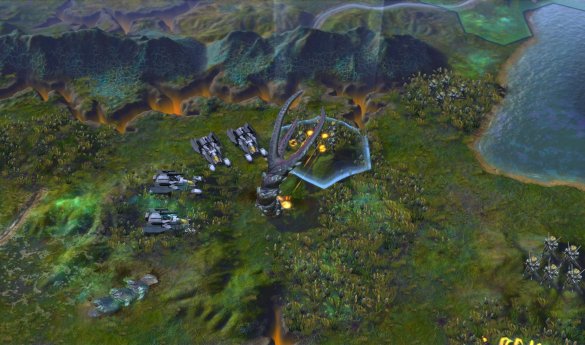
-
Sid Meier's Civilization: Beyond Earth Screenshots #9
